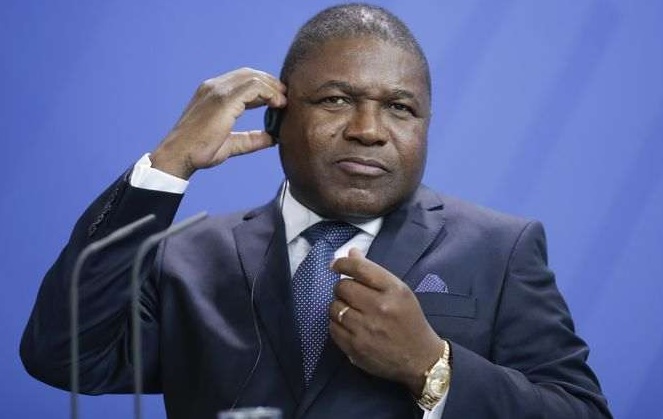Mozambique: ANJUR calls for measures to protect jurists
Government not opposed to forensic audit, says Nyusi

The Mozambican government is not opposed to an independent, international forensic audit of the country’s public debt, President Filipe Nyusi declared on Saturday.
Speaking at a press conference that concluded his visit to the southern province of Gaza, Nyusi stressed “at no time has any member of the government said that a forensic audit was not going to be undertaken”.
“What we have been saying is that the cases are already under way at the level of the Attorney-General’s Office and of the Assembly of the Republic (the Mozambican parliament)”, he added. “So the authorities are working”.
The controversy arises over three government guaranteed loans to quasi-public companies in 2013 and 2014, the closing years of the government of Nyusi’s predecessor, Armando Guebuza. Between them these loans amounted to over two billion US dollars, and added 20 per cent to the Mozambican foreign debt.
One of the loans was public – this was the 850 million dollars of bonds launched on the European bond market by the Mozambique Tuna Company (EMATUM). The main banks handling the bond issue were Credit Suisse and VTB of Russia.
But the same two banks lent large, but undisclosed sums to the companies Proindicus (622 million dollars) and Mozambique Assets Management (MAM – 535 million dollars). Proindicus was set up to provide security to offshore oil and gas operations and to other shipping in the Mozambique Channel, while MAM is to sell naval maintenance and repair services.
The latter two loans and their government guarantees were not disclosed, either to the Mozambican public, or to Mozambique foreign partners, notably the International Monetary Fund (IMF). When the loans became public knowledge in April, the IMF suspended its programme with Mozambique, including the second instalment of a 283 million dollar loan from the Standby Credit Facility (SCF). Other partners followed the IMF’s lead – notably all 14 donors and funding agencies that provided direct support for the Mozambican state budget suspended all further disbursements.
The IMF suspected corruption was involved in the loans. In an interview with the BBC in May IMF Managing Director Christine Lagarde said “When we see a country and a programme with the IMF where international community money is committed, that is not respecting its financial disclosure engagement, which is clearly concealing corruption, we suspend the programme. We did that just recently with Mozambique.”
The main demand raised by the IMF, and echoed by Mozambique’s other western partners, such as the United States and Britain, has been for an international, independent, forensic audit which would track down exactly what happened with all the money involved.
The outgoing IMF representative in Maputo, Alex Segura, insisted on such an audit earlier this month. He said that, while the Fund encourages the work, both of the Attorney-General’s Office (PGR) and of the parliamentary commission investigating the loans, this does not dispense with the need for an audit.
“We maintain our position that an independent and international forensic audit is necessary”, said Segura. “The government is assessing how international experts can support the investigations of the PGR. We agree with this approach. But the role of the international experts must be defined very clearly. In our view, the experts should produce an independent forensic audit report. This should in parallel and as a complement to the work of the PGR”.
Nyusi’s statement on Saturday makes it clear that the government has not slammed the door on the possibility of a forensic audit. Doubtless this will become important in Nyusi’s forthcoming visit to Washington, where he is expected to meet with Lagarde.
The deal about which most is known is the 850 million dollar bond issue for EMATUM. This money was intended to buy 30 vessels – 24 tuna fishing boats, and six patrol boats, all built at a shipyard in the French port of Cherbourg.
The French press in 2013 put the total cost of these boats at 200 million Euros (about 230 million US dollars). Yet the amount paid by EMATUM was the full 850 million dollars – about 836 million for the boats, and 14 million in bank charges and commissions.
The finances become even more curious when one looks at the webpage of Mozambique’s Ministry of the Sea, Inland Waters and Fisheries. This puts the cost of a longline tuna fishing boat purchased in Europe at between two and six million dollars, depending on capacity. Tuna trawlers are more expensive, and the Ministry’s website estimates their cost at between 15 and 18 million dollars.
According to the EMATUM website, the EMATUM fleet consists of 21 longliners and three trawlers. Using the figures provided by the Ministry itself, these should have cost no more than 240 million dollars. That leaves 596 million dollars. Could the six relatively small interceptor patrol vessels also supplied under the deal really have cost that much?
These financial details make an obvious case for a thorough audit of the EMATUM bond.












Leave a Reply
Be the First to Comment!
You must be logged in to post a comment.
You must be logged in to post a comment.